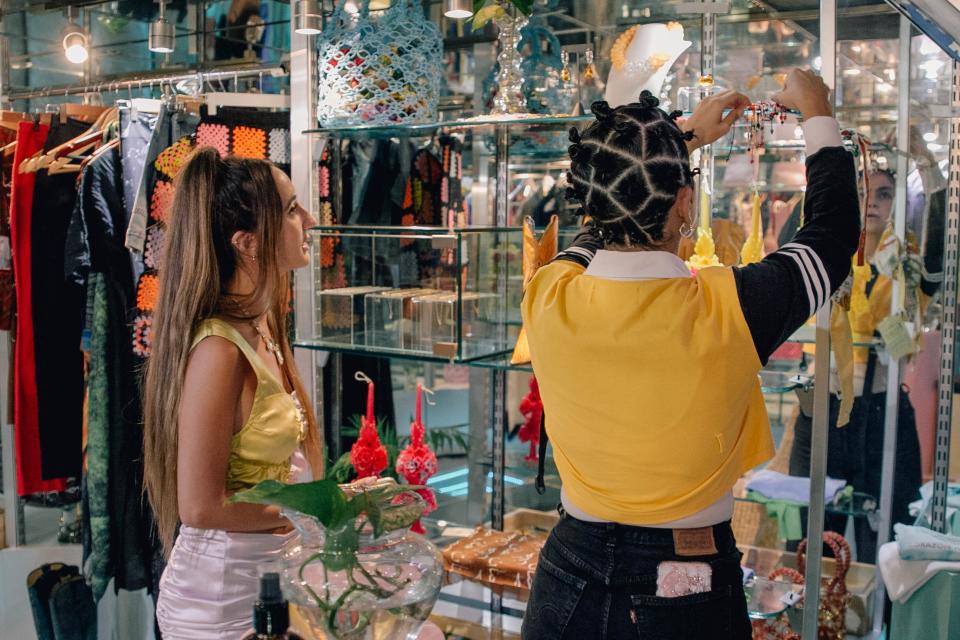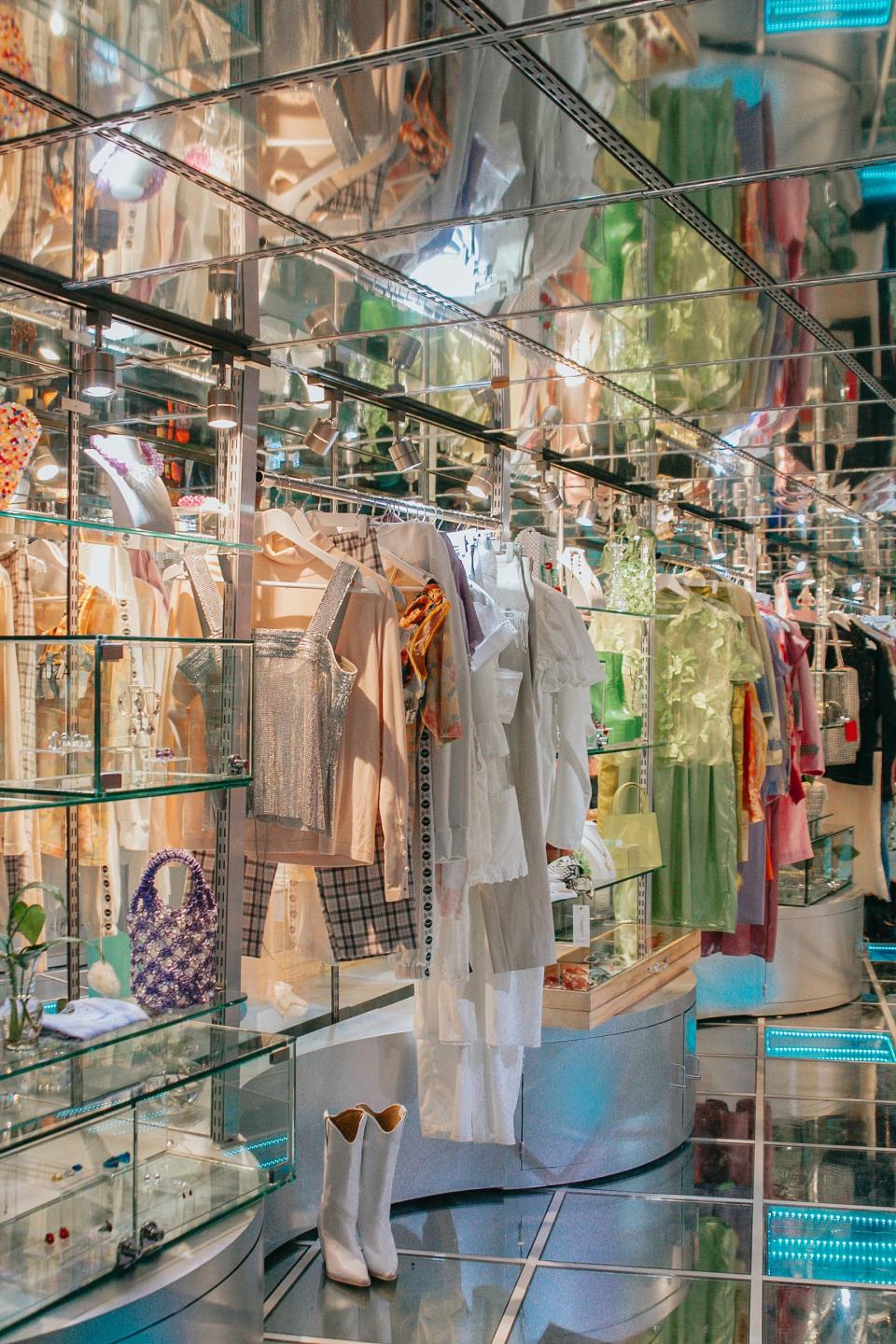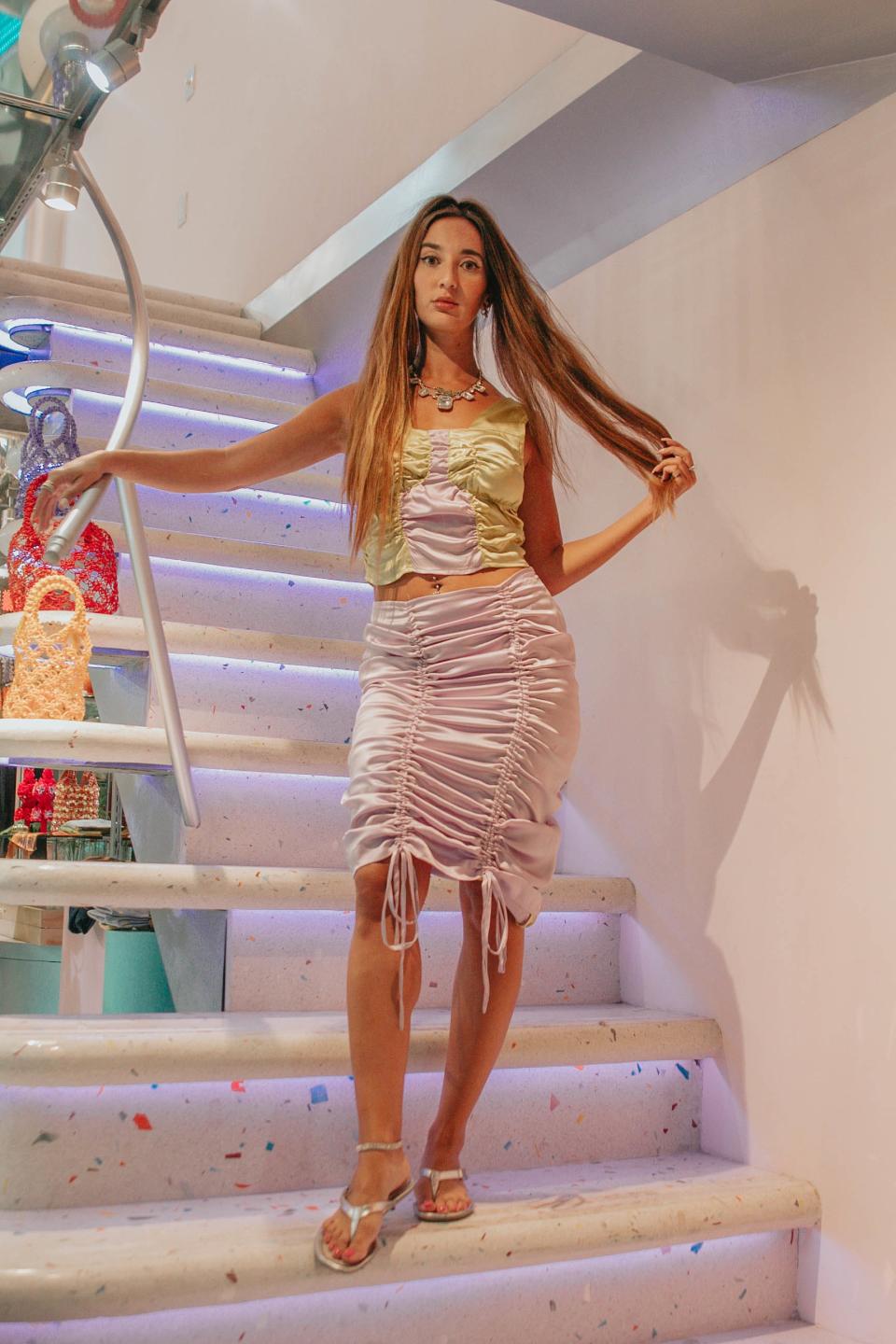Cool Girl Suzzan Atala of the Insta-Beloved Store Tuza Opens a Hub in Mexico City

Few New Yorkers understand the underground culture and emerging designers of Mexico City better than the jewelry designer Suzzan Atala. While she has an outpost in Manhattan—Tuza on Hester Street, a longtime favorite among It girls and Instagrammers—her heart has always remained in her hometown of Mexico City, where Atala has opened a sister store. The shops gather an array of handcrafted Mexican fashion and accessories: the souvenir go-to Bolso bags, palm-woven purses in the shape of a crocodile, as well as the work of local contemporary designers like Barragán.
What makes Tuza special is its refreshing approach to retail. While also selling goods, Atala is trying to build a community. For this, she created two floors: the first is for buying clothing and accessories, and the second floor is interactive and includes a piercing and manicure station and a custom jewelry spot. “We want to create a community where people can come and chill,” says Atala. “The whole idea of just fashion is obsolete at this point."
Cool Girl Suzann Atala of the Insta-Beloved Store Tuza Opens a Hub in Mexico City






A big part of Tuza’s appeal is Atala’s own unique sense of style, which has earned her brand devotees like model Paloma Elsesser and nail artist Madeline Poole. She describes her look as “comfortable but also coquettish.” As a rule, she avoids black. “I feel that is safe, but culturally, people in Mexico grew up suppressing vibrant colors even though we are a colorful culture.” Her personal taste is reflected on the store’s shelves, which are stocked with many hip homegrown labels like Sánchez-Kane, Paloma Lira, Alysta, and Anthony Rivera.
Local artisan culture is also a major part of the store and a deeper signifier of community building. For example, to design one of the store’s signature pieces—the Tuza Cesta bag, a jaunty handwoven carryall—Atala hired a local artisan who now works for her full-time, employing a traditional technique he learned from his weaver mother. Other artisans craft accessories, homeware, and her signature jewelry line, which includes pearl chokers dotted with teeny hearts or a hand-sculpted swirly silver ring with Swarovski crystals named “baile de gotas,” or “dance of drops.” Her goal is for all her jewelry to eventually be created entirely by local artisans. “The whole idea is to build an economy in Mexico,” says Atala. “It’s important that if you’re in fashion today, you’re making a difference.”
Originally Appeared on Vogue

